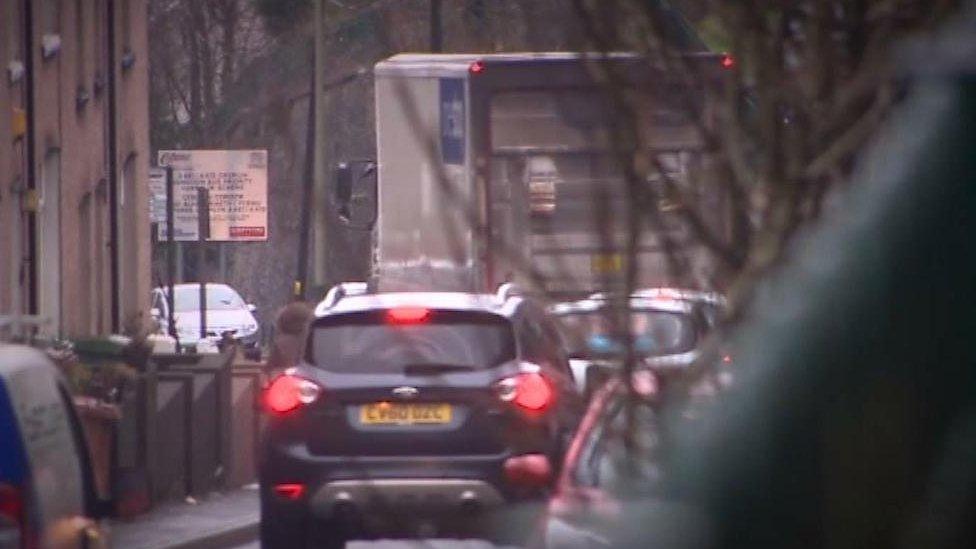How can Wales tackle air pollution?
- Published
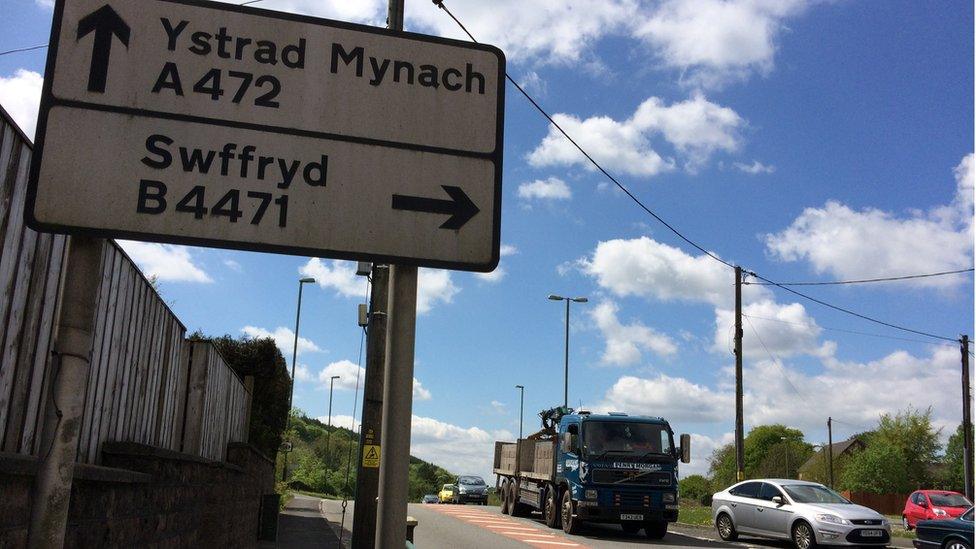
Hafodyrynys Road in Crumlin is the most polluted street outside London in the UK
Air pollution is a "public health crisis" second only to smoking, according to Public Health Wales.
Air pollution contributes to 2,000 deaths in Wales each year - that's 6% of all deaths.
Research has found children who live on very polluted roads have slower lung development and can be more likely to cough and wheeze, while traffic pollution can also contribute to heart and lung problems in adults.
Those health problems are caused by tiny particles and a gas called nitrogen dioxide, both of which are by-products of the vehicles on our roads, and noise from traffic also plays a part.
In 2001, people were encouraged to buy diesel cars to reduce carbon dioxide levels but that has now led to an increase in nitrogen.
So, one answer is to reduce the number of diesel vehicles on the road - a solution that London mayor, Sadiq Khan, is keen on.
He has doubled spending on tackling air pollution to £875m. BBC Wales' Week In Week Out went to London to see whether any of the schemes there could work in Wales.
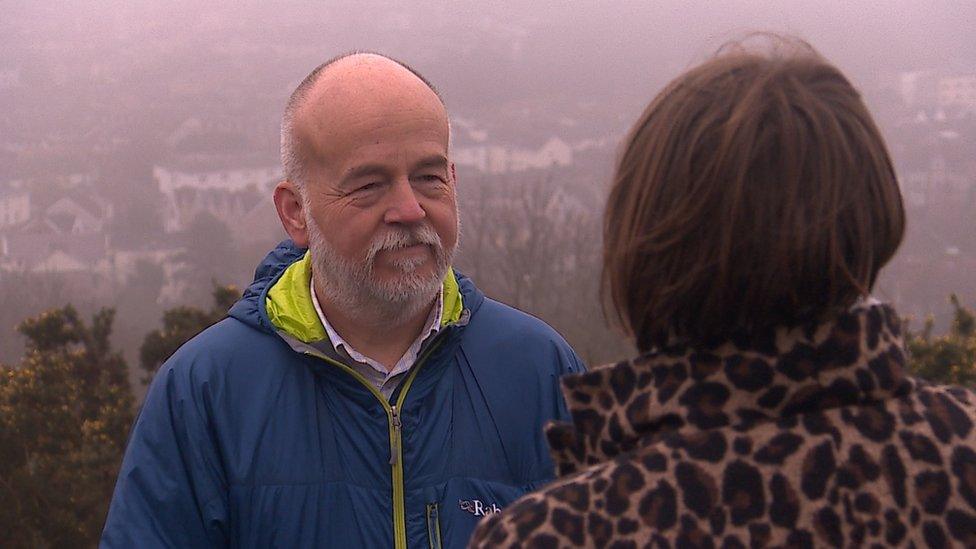
Huw Morgan, chairman of the Welsh Pollution Expert Panel
Khan has introduced an ultra low emission zone in the centre of London. It means all drivers will have to make sure their vehicles meet exhaust emission standards or pay a daily charge.
We asked Huw Morgan, chairman of the Welsh Pollution Expert Panel, whether that could work.
He said it may be time for Swansea to consider introducing diesel bans in the most polluted streets.
"I think we're at a time now where we've got to look at keeping diesels out of some very specific areas."
We also met his colleague Tom Price, from Swansea Council, who hopes a new public messaging system could help encourage drivers to take different routes at peak traffic times.
"We're developing a prediction system to enable drivers to be warned via messaging screens that there's poor air quality being predicted, or congestion in the traffic, and trying to educate drivers to change their route."
But isn't that tackling the symptoms rather than the cause of the problem?
"Yes, that's always a possibility and a likely occurrence. We work with our traffic colleagues to make sure we're not just shifting the problem somewhere else. There are other measures like increasing cycling routes and looking at the bus routes."
Electric vehicles
Can electric cars manage Welsh hills to tackle pollution?
Electric cars and buses are another way to reduce emissions, so we took an electric car around 150 miles of south Wales roads.
It seemed to cope quite well with cities, but motorways and hills were more of a challenge and charging took a long time.
Huw Morgan told us Swansea council uses some electric vans too.
"They're fine for normal council, light van work, where you're doing journeys around half a mile to a mile and they charge up over lunch. They're good for short journeys - which are exactly what diesel vehicles are worst at.
"[Hills] are challenging for electric vehicles. Swansea, like many Welsh towns, is a hilly place. We have struggled here when we piloted electric buses."
We also struggled to find convenient places to charge the car and once we did find one, it took a long time. With only 80 miles on the clock before you have to charge, you would need to plan your journeys carefully.
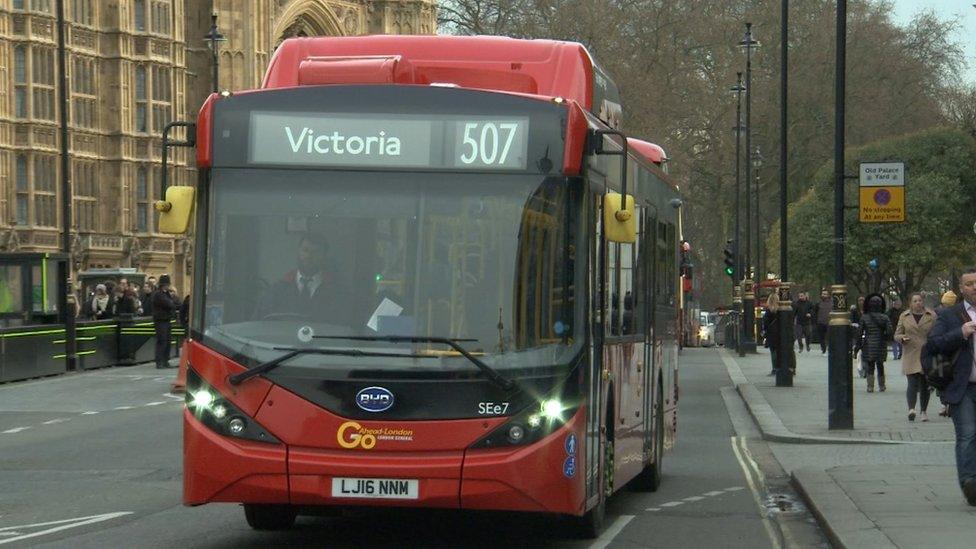
Electric buses are running in London
London also has an £11m fund for five low emission neighbourhoods. Five of these zones will be set up across eight boroughs.
These areas will introduce measures such as penalties for the most polluting vehicles, car-free days and reserved parking for the cleanest vehicles.
The idea behind these is the most polluted neighbourhoods can pitch ideas that work for their local area. Proposals in Marylebone included better management of taxi ranks and an electric vehicle delivery scheme.
Westminster Councillor David Harvey said: "We hope in several years' time this entire area will have some of best measures to decrease air pollution. It's a pilot and we hope people borrow what works."
Multi agency summit
Andrew RT Davies, leader of the Welsh Conservatives, has called on First Minister Carwyn Jones to hold a multi-agency summit to tackle what he calls "Wales' air pollution crisis".
The Welsh government recently held a consultation on the way councils deal with air pollution hotspots and said it would publish its response soon.
- Published7 March 2017
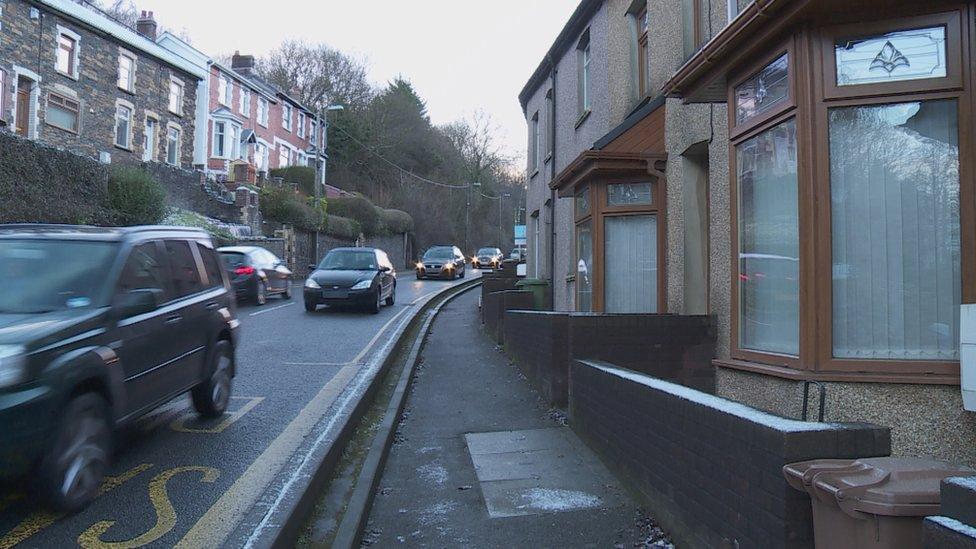
- Published7 March 2017
